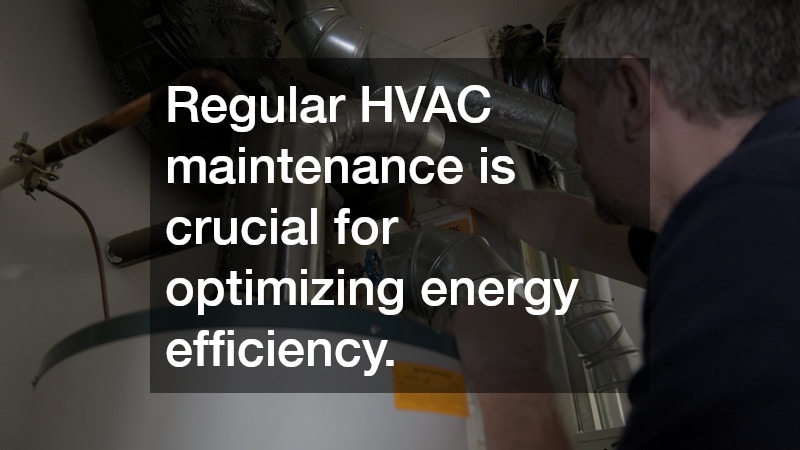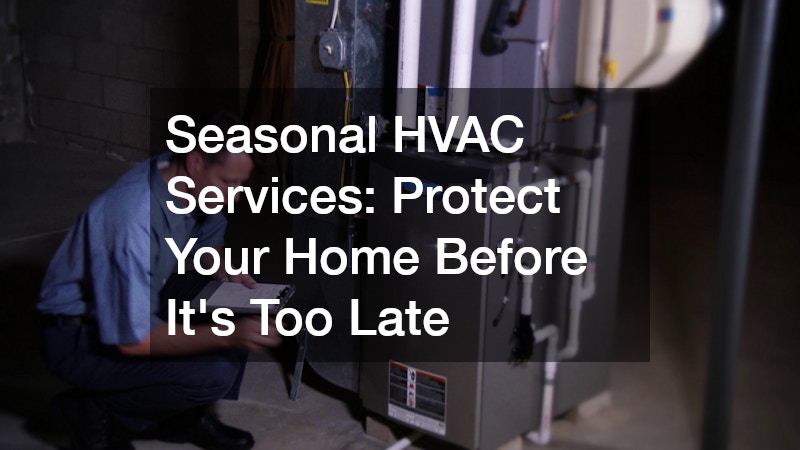Recognizing the significance of seasonal HVAC services can help homeowners avoid unexpected breakdowns and costly repairs. As the weather fluctuates, keeping your heating, ventilation, and air conditioning (HVAC) systems in optimal condition for comfort and efficiency is vital. Don’t wait for issues to arise—contact Westland HVAC + Plumbing today for reliable HVAC services in Avon, OH!
Why Is Seasonal Maintenance Important for HVAC Systems?
Increase System Efficiency
Regular HVAC maintenance is crucial for optimizing energy efficiency. Routine checks by technicians ensure that all components function smoothly, preventing the system from overworking and reducing unnecessary energy consumption.
This leads to a comfortable living environment and lower energy bills, making it a sound financial choice. Moreover, reducing energy use positively impacts your home’s environmental footprint, aligning with sustainable living goals. Seasonal maintenance also identifies areas for further optimization, such as clean air filters that improve air quality and decrease energy usage. By calibrating systems for changing weather conditions and ensuring proper ductwork sealing, maintenance fine-tunes your HVAC system for optimal performance year-round, enhancing both efficiency and comfort.
Extend Equipment Lifespan
Investing in seasonal HVAC maintenance is essential for extending equipment life. Regular inspections help identify small issues before they escalate into costly repairs or replacements. Components like worn-out belts can be addressed early, ensuring the system remains healthy over time. Moreover, consistent maintenance keeps the system under warranty, as manufacturers often require proof of care to honor claims. This documentation can save homeowners significant costs if components fail while covered. Additionally, prolonging your HVAC system’s lifespan contributes to sustainability by reducing waste and minimizing resource consumption. By maintaining existing systems, we help decrease the carbon footprint linked to manufacturing new units, aligning with broader environmental goals and promoting responsible equipment management.
What Does HVAC Seasonal Maintenance Include?
Comprehensive Inspection
A comprehensive inspection is a key element of seasonal HVAC maintenance. It assesses the performance and condition of the entire system. Technicians scrutinize everything from air filters to ductwork, ensuring optimal operation. These inspections are critical for identifying signs of wear, damage, or inefficiencies that could compromise the system’s performance or safety. By examining various components, technicians can detect issues early that might otherwise remain unnoticed.
A thorough inspection includes component assessments, checking system pressures, verifying the absence of leaks or blockages, and monitoring refrigerant levels. These evaluations are vital for maintaining efficiency and proper balance within the HVAC system. For instance, even a minor refrigerant leak can significantly reduce cooling efficiency and drive up energy costs. Catching such problems through routine inspections helps homeowners avoid a gradual decline in system performance and escalating repair expenses.
Moreover, comprehensive inspections also entail assessing the system’s safety features, which are essential for protecting the home and its occupants. Identifying malfunctioning parts or potential hazards before they become a risk provides peace of mind. By addressing safety concerns, homeowners can ensure their HVAC system operates effectively, efficiently, and safely.
Cleaning and Adjustments
The seasonal HVAC maintenance process focuses on cleaning and fine-tuning system components to ensure optimal operation. Over time, dust, dirt, and debris can accumulate, obstructing airflow and heat transfer, negatively affecting efficiency. By cleaning air filters, coils, and other vital parts, technicians restore the system’s ability to circulate air effectively, enhancing operational efficiency and reducing strain. This proactive cleaning helps prevent overworking and potential breakdowns.
Adjustments are equally important for smooth and efficient system functioning. This includes calibrating thermostats, adjusting blowers for proper airflow, and tightening electrical connections, all of which significantly impact performance and longevity. A well-calibrated thermostat ensures accurate temperature control, enhancing comfort and conserving energy. Seasonal HVAC maintenance involves cleaning and fine-tuning system components to ensure optimal performance. Over time, dust and debris accumulate, obstructing airflow and reducing efficiency. By cleaning air filters, coils, and critical parts, technicians restore the system’s ability to circulate air and enhance operational efficiency while preventing potential breakdowns.
When Should You Schedule Seasonal HVAC Services?
Ideal Times for Maintenance
Scheduling seasonal HVAC services is vital for efficient year-round operation. The best times for maintenance are spring and fall, when demand for heating and cooling is lower. Spring preparation ensures your cooling system is ready for summer, while fall maintenance gets your heating system set for winter. This proactive approach decreases the risk of failures during peak seasons and provides uninterrupted comfort. Additionally, scheduling during these times allows for greater technician availability, reducing wait times for appointments. Following manufacturer guidelines for bi-annual maintenance helps maintain warranty coverage, optimizes performance, and enhances the longevity of your HVAC system.
Warning Signs: When Immediate Service Is Needed
Homeowners should be vigilant for signs that their HVAC system needs immediate attention. Unusual noises from the system can indicate problems like loose components or malfunctioning parts that require prompt professional evaluation. Additionally, inconsistencies in temperature throughout the home suggest underlying issues, potentially involving the thermostat, ductwork, or refrigerant leaks. Despite stable usage, an unexplained increase in energy bills may point to inefficiencies within the system, such as air duct leaks or degrading components. Addressing these concerns quickly can prevent costly repairs and ensure that the HVAC system operates efficiently, providing consistent comfort in the home.
Conclusion
Investing in seasonal HVAC services is essential for your home’s safety, comfort, and efficiency. Regular maintenance prevents costly repairs and ensures your system operates at peak performance. By addressing minor issues early, you can extend the life of your HVAC system while promoting energy efficiency and reducing your carbon footprint. As a responsible homeowner, it’s time to prioritize your HVAC needs.


